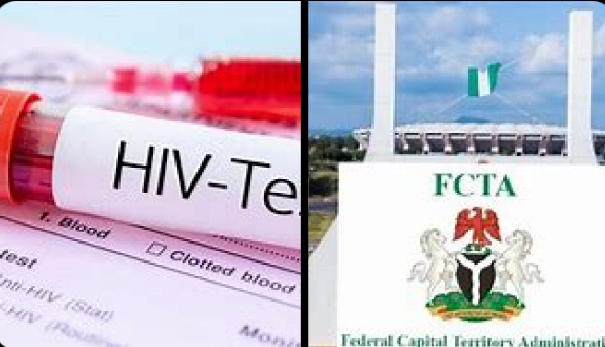By Adeyemi Adekunle
The Federal Capital Territory (FCT) has enrolled an impressive 61,384 individuals living with HIV/AIDS in treatment programs, marking a significant leap in the region’s response to the epidemic.
Dr. Adedolapo Fasawe, the Secretary for Health Services and Environment Secretariat of the FCT Administration, revealed the figures during a press conference in Abuja on World AIDS Day, observed annually on December 1st.
This year’s theme, “Take the Right Path: Sustain HIV Response, Stop HIV Among Children,” underscores the urgent need to address pediatric HIV and ensure the rights of all individuals affected by the virus, particularly children.
Dr. Fasawe emphasized the importance of this initiative, stating, “We must commit ourselves to tackle the rising issue of pediatric HIV, which not only affects the health of children but also the fabric of our society.”
The enrollment figure reflects remarkable progress, exceeding the initially projected target by a staggering 223%, with a notable inclusion of individuals migrating from neighboring states.
Among those receiving treatment, 1,048 are children, accounting for 3.8% of the total enrolled population, all of whom are receiving life-saving antiretroviral therapy. This focus on treating children aligns closely with global efforts to eradicate the disease and protect vulnerable populations.
The reported prevalence of HIV in the FCT stands at 1.4%, slightly surpassing the national average of 1.3%. With a population estimated at approximately 6.95 million, the statistics highlight the urgent need for continued efforts to provide care and support.
Dr. Fasawe outlined the FCTA’s proactive strategies, which include the establishment of a comprehensive network with 122 service delivery points spread across six Area Councils, and a robust outreach program targeting remote and underserved areas.
One of the most notable initiatives is the introduction of “mentor mothers,” who play a vital role in supporting pregnant women through their pregnancy journey, particularly in areas of education and health.
These mothers also facilitate early infant diagnosis within 72 hours of birth, a critical step in preventing the transmission of HIV to newborns. Additionally, the FCTA has expanded access to Pre-Exposure Prophylaxis (PrEP) for individuals at high risk of contracting HIV, underscoring a multi-faceted approach to combating the epidemic.
Dr. Fasawe credits the success of the FCTA’s HIV/AIDS programs to strong partnerships with key organizations such as the National AIDS and STI Control Programme and the National Agency for the Control of AIDS. Collaborations with the Institute of Human Virology Nigeria, AIDS Healthcare Foundation, and other implementing partners have been crucial in reaching key populations, including women, children, and vulnerable groups.
Despite these significant achievements, Dr. Fasawe emphasized that the battle against HIV/AIDS is far from over. “While we have made significant strides, the reality is that much work remains to be done, particularly regarding pediatric HIV,” she noted.
The FCTA’s commitment to reducing stigma, ensuring that underserved populations can access quality care, and continuing public awareness campaigns is critical to their ongoing mission.
As World AIDS Day is a day of mourning and remembrance, it also serves as a rallying call for communities to stand in solidarity with those affected by the disease. With events planned throughout the FCT, including a road walk scheduled for Tuesday from Government Secondary School, Garki to Old Parade Ground, Area 10 in Garki, the initiative aims to raise awareness and foster a spirit of unity and support in the fight against HIV/AIDS.
The Federal Capital Territory’s strides in enrolling individuals in HIV/AIDS treatment illustrate a promising future for those affected by the virus in the region.
With continued efforts to focus on pediatric HIV and community education, the FCTA stands poised to make a lasting impact on the lives of countless individuals and families. The journey is ongoing, but with unwavering commitment and partnership, a world free of HIV/AIDS is a tangible goal on the horizon.




